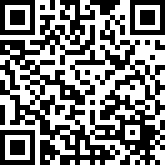- Since June, federal officials have seized $961 million worth of goods over suspected ties to forced labor, Customs, and Border Protection officials said.
- Companies are receiving detention notices and stand to lose millions of dollars while their goods remain in custody at ports.
- Topping the list of detained items in terms of dollar value: electronics, apparel, footwear, textiles, and agricultural products.
Since late June, federal authorities have seized $961 million worth of goods over suspected ties to forced labor, officials told CNBC.
In many instances, companies have no idea their supply chain is tainted, officials said.
CNBC received exclusive access in February to the Port of New York and New Jersey, the largest port on the East Coast, located a few miles southwest of Manhattan. There, millions of dollars’ worth of cargo – from solar panels to bedding to floor tiles – was being held while major companies scrambled to prove their supply chains are clean.
“Our goal for the forced labor laws [is] to prevent merchandise from being made with forced labor in the first place, and we will not rest until we achieve that goal,” said Customs and Border Protection Executive Assistant Commissioner AnnMarie Highsmith, who oversees the Office of Trade.

The enforcement falls under the Uyghur Forced Labor Prevention Act, or UFLPA, signed into law by President Joe Biden in late 2021. The law prohibits imports of goods produced or sourced in the Xinjiang region of China from entering the U.S. economy.
China has come under intense criticism recently for its treatment of the Uyghur minority. Last year, a report by the Office of the United Nations High Commissioner for Human Rights into the Xinjiang Uyghur Autonomous Region of China concluded that “serious human rights violations” against the Uyghur and “other predominantly Muslim communities” have been committed by the country. Beijing denied the claims, calling it “disinformation” and “lies fabricated by anti-China forces.”
According to Highsmith, enforcing ULFPA is a top priority for CBP and the department.
“This is not just a supply chain security issue for us,” Highsmith said. “It is an economic security issue for the country.”
This is not just a supply chain security issue ... it is an economic security issue for the country. - AnnMarie Highsmith - EXECUTIVE ASSISTANT COMMISSIONER, OFFICE OF TRADE, U.S. CUSTOMS & BORDER PROTECTION
Highsmith told CNBC that Chinese authorities make doing business in the country even more challenging.
“The Chinese government has taken steps to obfuscate those supply chains and prevent businesses from learning [about] the conditions under which the products are manufactured,” Highsmith said. “So if you’re going into China you have an extra layer of risk to work against.”
Highsmith’s message to American businesses: “know your supply chain.”
But it isn’t that easy.
Surprisingly, the most recent CBP data shows that in terms of value, the majority of shipments detained since last summer were not sent from China. Shipments coming directly from China represented about $80 million worth of goods, while Malaysia accounted for $461 million and Vietnam accounted for $370 million. CBP officials told CNBC those shipments were stopped because the goods were believed to have been made with raw materials from the Uyghur region.
To date, only about a third of those detained shipments, amounting to 1,090, have been released.

Both the Biden and Trump administrations have amped up economic and trade pressure on China. The White House under President Joe Biden is currently reviewing the penalties imposed under former President Donald Trump, who levied a raft of tariffs on Chinese goods in an effort to bolster U.S.-made goods.
During CNBC’s recent visit to the port, 916 40-foot-long shipping containers filled with merchandise worth about $60 million were under investigation, said CBP Assistant Port Director Ed Fox.
“UFLPA allows us to presume [goods] were produced with forced labor, and therefore they’d be excluded from the United States,” said Fox. “So now, [after receiving a detention notice], the importer has to go back through their entire supply chain, and they have to prove that it was not produced with forced labor.”
In addition to $20 million worth of solar panels in lockdown, there was also a 40-foot container filled with bags of xanthan gum – a common food additive used in toothpaste and ice cream – and $15 million worth of vinyl floor tiles.
Textiles are a big category, too. “The cotton commodity coming out of the Xinjiang region has typically been tied to forced labor,” Fox told CNBC.
